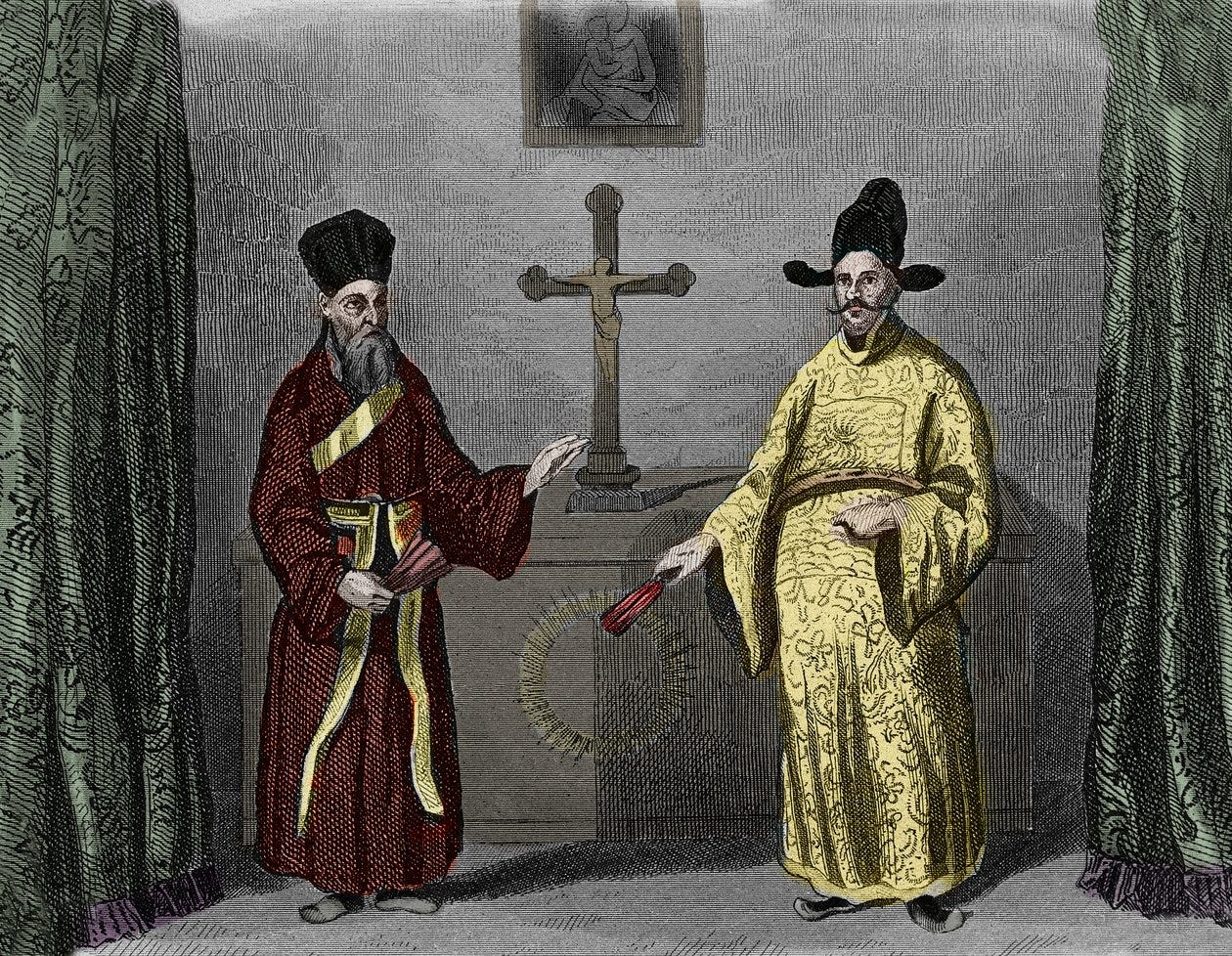What, where, and why is "West"?
Abandoning an outdated and problematic paradigm
I am pleased to see more and more serious Christians point out the uselessness of the tired old paradigm called “Western Civilization”. This is a concept oft presented as a textbook explanation of history (or at least, the history that matters) but is in fact not as old as Thermopylae. In fact, it may not even be as old as your grandparents.
Indeed, its origins lie in the much more contemporary conflict of the Cold War in which a Manichean dichotomy could be extended between the “good West” and the “Bad East”, something that must have come in handy when counting nuclear warheads or Olympic trophies. Extending the mentality further back, we can place it equally problematically at the start of the age of colonization by Western European powers, which came at the expense of their African and indigenous American partners in the Columbian Exchange. Neither of these “us vs them” understandings of history are especially helpful to a Christian interested in human rights and development.
Still, this paradigm proves intoxicating for a staggering number of folks, especially those on the right looking for a way to justify their geopolitical hegemony by placing it in a historical context. However, this approach falls through rather quickly, as our world is and always has been more complex than a mere march westward. As I’ve quoted before, one author sums this mentality up well,
“…the narration went on to describe the gradual westward movement of this light of knowledge, until it ultimately reached its destination in the foothills of Southern California… the special twist that makes California the apex of Western civilization is disputed, however, in places like New York.”
A difficulty exists in defining what is West. The United States of course, is obvious. So is England, and to a lesser degree France and Germany. Spain gets a little murky, and Latin America, despite its clearly occidental placement on a map, is nearly always excluded from the narrative. Australia and New Zealand also present a problem, because though their colonial British pasts are clear, they nonetheless fall well within the Oceanic and Asian sphere. We could go down a list of places that may or may not make the cut - Japan? Korea? The Philippines? South Africa? Egypt? Israel? Turkey? Russia? What about Native American cultures or Aboriginal Australians? Are they part of the Western paradigm, or merely obstacles to its inevitable march? Is an Indian Christian more “Western” than a British Muslim?
The problem is that beyond the geographic, the “values” often touted as Western are as varied and often opposed in their origins as capitalism, democracy, and “Judeo-Christianity”. Indeed, there’s no reason why these should go together naturally, and in some cases there are very real tensions between them, especially the former with the latter two.
Catholic pundits of course, at least those sympathetic to right wing ideologies, love this narrative. However, it proves counterproductive, as the “civilization” of the West gradually replaces Catholicism and creates an anti-Church which does not reflect the global Catholic community. The truth of the matter is Christianity is a universal religion begun in an area deeply problematic to assess by Western Civilization standards. The whole thing smacks of the racially-coded emphasis on “Northerness” occasionally touted by Protestant apologists of the past. It’s icky, outdated, and a dumb way of doing history.
If you want to talk about and defend Christianity, or democracy, great. Talk and defend those things. Do not assume they are the unique inventions of “us in the West” and “everywhere else” must bow and scrape and thank us for it while we jab them with out bayonets.
The truths of Christianity, of course is as old and universal as the universe itself.
Democracy, or collective decision making on behalf of the community, is probably as old as the tribal communities of the Ice Age. At any rate, we see it formally in place (if temporarily) in the Sumerian civilization of modern day Iraq and Kuwait who at this time is considered the oldest civilization in the world. (Here I used the word civilization to mean an urban and agricultural society, though there are doubtless many other models)
Christians, please abandon the deeply problematic “Western-centric” point of view and embrace the brown-skinned Messiah who taught us to make disciples of all nations, not just those to the left of an ever varying line on a map.
As an afterthought, it should be mentioned that the Western paradigms reactionary opposite, aka Orientalism, is not helpful in the slightest either. In this case, the “East” is reflected on as especially more mystical or mysterious and romanticized. In addition, any accomplishments that are deemed “Western” are devalued. As mentioned, this is merely reactionary, and not a true appreciation of Asian culture and heritage. Good, true and beautiful things come from everywhere and as the Church is everywhere, we can appreciate the good seeds of culture (and by culture, I mean real culture like the arts, food, language, and history, not vague ‘values’) from all across the planet. As has been argued in one of my favorite video essays, appreciating one culture or aspect of culture is non-competitive with your appreciation of others. After all, true love is always non-competitive.
Peace.



